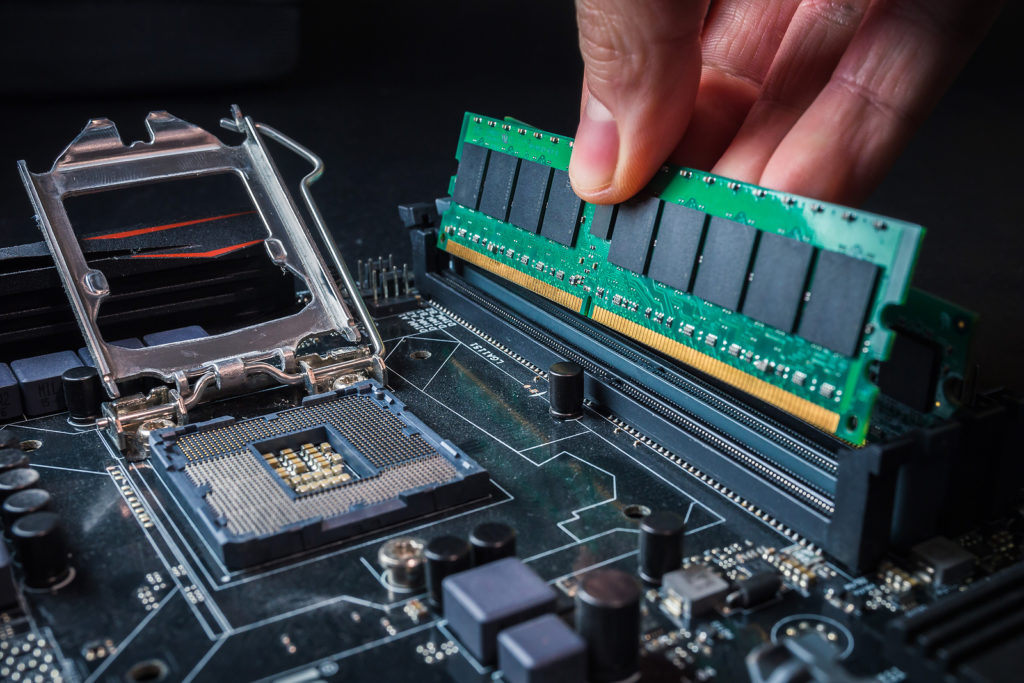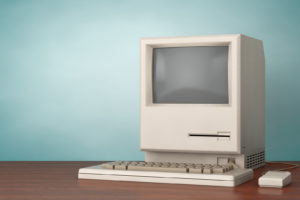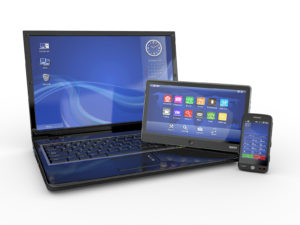Computer Engineering

TRYENGINEERING CAREER PATHWAYS
Computer Engineering
Computer engineers research, design, develop, test, and oversee the manufacture and installation of computer hardware, including computer chips, circuit boards, computer systems, and related equipment such as keyboards, routers, and printers. Their work is similar to the work of electronics engineers in that they may design and test circuits and other electronic components; however, computer hardware engineers do that work only as it relates to computers and computer-related equipment. They also focus on computer networks for the transmission of data and multimedia.
The work of a computer engineer is grounded in the hardware — from circuits to architecture — but also focuses on operating systems and software. Computer engineers must understand logic design, microprocessor system design, computer architecture, computer interfacing, and continually focus on system requirements and design.
What makes it unique?
These days, computer equipment is embedded in most electronic products, and the world is connected via computing systems. So computer engineers are working in all sorts of industries and developing and connecting products and systems in new ways every day!
 Degree Connections
Degree Connections
The following are examples of some accredited degrees leading to a career in computer engineering:
- Computer Engineering
- Computer Engineering Technology
- Computer Science
- Computing
- Software Engineering
- Computer Systems Engineering
Search our global database of accredited engineering programs.
Want to learn more?
Click on the blue tabs to explore the field in more detail and learn about preparation and employment, the green tabs to be inspired by people working in computer engineering and how they impact the world, and the orange tabs for ideas on how to learn more and you can get involved with activities, camps, and competitions!
Explore

Because computer engineers are involved in designing new computer hardware, testing it, and overseeing manufacturing of new equipment they might spend their time in offices, or at testing facilities, or at client locations. They will be working in teams with software developers and others on most projects, and so will be involved in meetings both in person and remote. They generally work a 40 hour work week, but could be called upon to work more hours during testing, manufacturing start up, and other key points in product development. They will be involved in presentations where they explain the status of new products in development. And may participate in funding proposals as well. These days, it is difficult to find a company that doesn’t require the expertise of computer engineers for its products or systems.
The Personal Computer:

While large computers were used in various situations since the 1940s, such as the ENIAC (Electronic Numerical Integrator and Computer), and the Colossus, which was used to break codes during World War II in Bletchley Park in the UK – it was the development of the “personal” computer or PC in the late 1970s put computing into the hands of average people, changing everyday tasks from writing to invoicing to tax preparation to graphic design and photo editing. It is estimated that there are over 2 billion computers in the world now.
By definition the PC was in a price range and small enough to make it useful for personal use. There were three PCs introduced in 1977 including the Commodore PET, the Apple II, and the TRS-80 from Tandy Corporation Together, these were referred to as the “1977 trinity”. Development and improvements in personal computing have continued ever since!
In terms of software and operating systems, since the early 1990s, Microsoft operating systems and Intel hardware has dominated the market. But alternatives to Microsoft operating systems occupy a share of the industry, including Apple’s macOS and free and open-source Unix-like operating systems, such as Linux. Because it is open source, Linux provider users with the ability to customize how their computer works and what applications it can complete.
Find out more:

Computer engineers work in most industries – any which incorporate technology into products or systems. The ongoing increase in the number of devices with computer chips embedded in them, such as household appliances, medical devices, and automobiles. They also work on new applications of computers, such as advances in digital television and photography, virtual meeting technology, intelligent highways, control systems, and new technologies for cars, phones, security systems, telescopes, airplanes, and space vehicles. And, of course employment is a global possibility for computer engineers!
Computer engineers can find employment working on embedded systems, new advances in integrated circuitry, signal processing, and information protection. The following is just a sample of some companies, in addition to government agencies, which employ computer engineers:
For most engineering careers:
- a bachelor’s degree is required
- a master’s degree may be recommended for those specializing or interested in management

bigstock.com/oatzstocker - students may also start with a related associate degree and then move on to a bachelor’s when they have settled on a degree path.
- many students are required to participate in a co-op program while at university to gain real world experience in their chosen field.
- education doesn’t really stop…engineers need to stay current as technology changes and materials and processes improve over time.
- many professional societies offer certificates and coursework to support continuing education for their members.
At the undergraduate level, examples of courses include circuit analysis, logic design, digital systems design, computer architecture, mathematical foundations of computing, and probability and random processes.
It is important to select an engineering degree that has been accredited to meet basic standards. Find out more and browse TryEngineering’s global database of accredited engineering and computing programs.
Be Inspired
One of the best ways to explore what it might be like to work in computer engineering is to learn about people currently working in the field.
- IEEE provides interviews with many electrical engineers through their Meet an Engineer program…find out about the career paths of many computer engineers!
- Alan Turing developed the idea for the Universal Turing Machine, the basis for the first computer. Find out How Alan Turing Cracked The Enigma Code from the Imperial War Museums.
- Paul T. Buchheit is an American computer engineer and entrepreneur who created Gmail. He describes his early career path and how it brought him to where he is today in the video to the right.
- Steve Wozniak is a computer scientist best known as one of the founders of Apple and the inventor of the Apple II computer.
- Bill Hewlett was an engineer and the co-founder, with electrical engineer David Packard, of the Hewlett-Packard Company
Explore more from Computer Hope which provides a list of computer engineering pioneers!

There are currently almost 8 billion mobile phone numbers in the world! It’s hard to think of a product that has revolutionized global communication more than the mobile phone. And of course phones are not just used for making phone calls these days, but they provide connection to the internet and therefore to communication, medical resources such as telemedicine, and educational resources.
The development of mobile phones and the transformation of portable phone technology over time is a remarkable contribution of the work of computer engineers and other professionals working on interdisciplinary teams.
As early as 1917, a Finnish inventor named Eric Tigerstedt filed a patent for a “pocket-size folding telephone with a very thin carbon microphone.” However, the acccepted the first cellular phone call took place in April, 1973 in New York, when a Motorola employee called Bell Labs in New Jersey. Digital cellular networks appeared in the 1990s, enabling expanded reach and therefore enhanced communication features. It’s worth saying that mobile phone technology and features have advanced as computing has advanced over the years!
Find out more:
Get Involved
Dig deeper into topics related to computer engineering that interest you!
Explore:
- British Computer Society: Artificial Intelligence
- IEEE Computer Society Top 12 Technology Trends
- TryEngineering News Blog
Watch:
Try it Out:
- Play some games that involve computer engineering:
- Try one of the TryEngineering lessons that focus on computing:
Clubs, competitions, and camps are some of the best ways to explore a career path and put your skills to the test in a friendly-competitive environment.

Clubs:
- Many schools have coding clubs or opportunities for students to get together and work on coding challenges.
Competitions:
- International Science and Engineering Fair students compete for nearly $5 million awards.
- Google’s Coding Competitions designed to enthrall, challenge, and test coders around the world. Try your hand at one, or all three.
- FreeCodeCamp lists popular coding challenge websites.
- CodinGame improve your programming skills.
Camps:
- TryEngineering Summer Institute, US: Attend the TryEngineering Summer Institute to further your core engineering skills.
- Embry Riddle Computer Engineering Camp a one-week overnight program is designed to teach students, ages 14 – 18, computer engineering concepts including logic, electronic circuits, programming, and embedded system design
- Google Computer Science Instituteis a 3-week intro to coding for high school seniors. The program aims to train emerging tech leaders and innovators, held in multiple states each summer, with an inside look into Google operations. Participation is free.
Many universities offer summer engineering experiences. Reach out to your local university’s engineering department to see what they offer.

Did you know you can explore computer engineering in your community? Consider the impact of computers over the past several decades on education, both locally and globally:
- How many computers do you find in your classroom? In the administrator’s office? What are they used for? How would these tasks have been completed in 1960?
- Are your exam scores recorded on paper or electronically? Whose computer is used to record test scores? How are they added to your transcript? Can you check your assignments at home through a computer?
- Are there any computer systems in your school that help secure the building by managing who can enter the building? Some buildings have a photo or id card computer system so staff and students can enter…does yours? How does it work? Does it check your fingerprint? Scan your eyes?
- Does your school have a website that posts your schedule and other information? What server hosts your school’s website?
Find out more:

Be sure to reach out to professional societies focused on computer engineering where you live. Not all will offer membership to pre-university students, but most offer groups for university students, and certainly offer online resources to help you explore the field.
Some examples of groups focusing on computer engineering:
Some resources on this page are provided or adapted from the US Bureau of Labor Statistics and the Career Cornerstone Center.
























